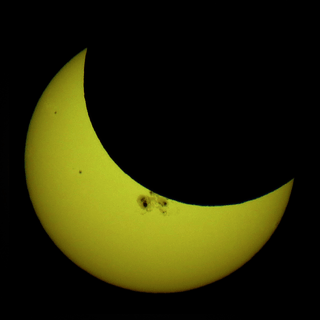Solar eclipse of April 20, 2061
A total solar eclipse will occur on April 20, 2061. A solar eclipse occurs when the Moon passes between Earth and the Sun, thereby totally or partly obscuring the image of the Sun for a viewer on Earth. A total solar eclipse occurs when the Moon's apparent diameter is larger than the Sun's, blocking all direct sunlight, turning day into darkness. Totality occurs in a narrow path across Earth's surface, with the partial solar eclipse visible over a surrounding region thousands of kilometres wide.
| Solar eclipse of April 20, 2061 | |
|---|---|
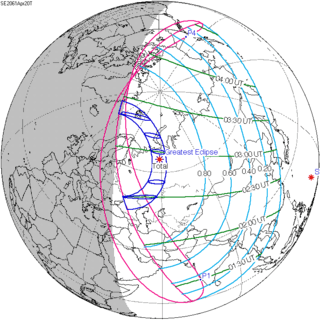 Map | |
| Type of eclipse | |
| Nature | Total |
| Gamma | 0.9578 |
| Magnitude | 1.0475 |
| Maximum eclipse | |
| Duration | 157 sec (2 m 37 s) |
| Coordinates | 64.5°N 59.2°E |
| Max. width of band | 559 km (347 mi) |
| Times (UTC) | |
| Greatest eclipse | 2:56:49 |
| References | |
| Saros | 149 (23 of 71) |
| Catalog # (SE5000) | 9644 |
Related eclipses
Solar eclipses 2059–2061
This eclipse is a member of a semester series. An eclipse in a semester series of solar eclipses repeats approximately every 177 days and 4 hours (a semester) at alternating nodes of the Moon's orbit.[1]
| Solar eclipses 2059–2061 | |||||
|---|---|---|---|---|---|
| 119 | May 22, 2058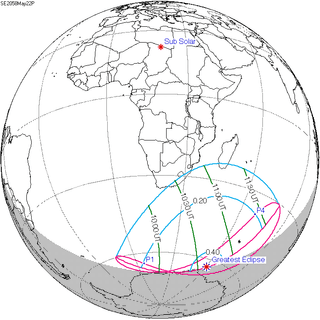 Partial |
124 | November 16, 2058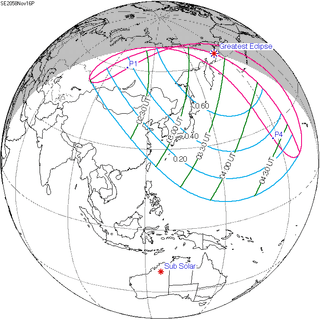 Partial | ||
| 129 | May 11, 2059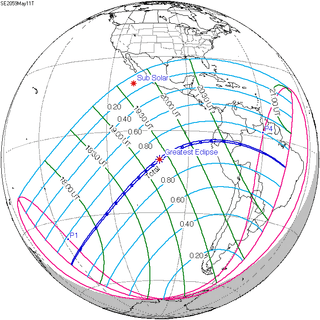 Total |
134 | November 5, 2059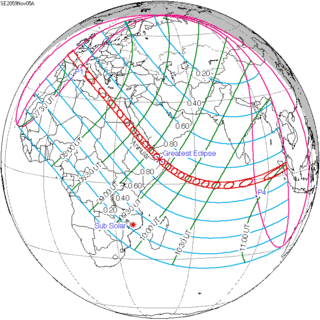 Annular | ||
| 139 | April 30, 2060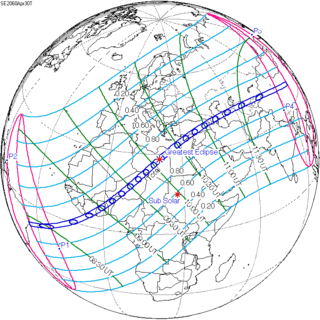 Total |
144 | October 24, 2060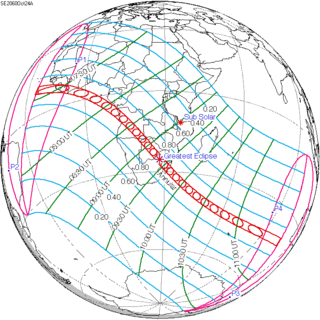 Annular | ||
| 149 | April 20, 2061 Total |
154 | October 13, 2061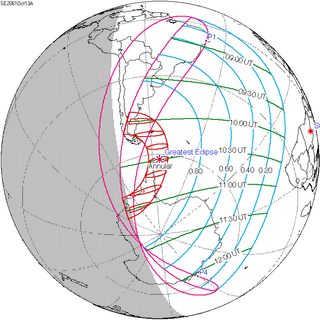 Annular | ||
Saros 149
Solar saros 149, repeating every about 18 years and 11 days, contains 71 events. The series started with a partial solar eclipse on August 21, 1664. It has total eclipses from April 9, 2043, to October 2, 2331. The series ends at member 71 as a partial eclipse on September 28, 2926. The longest total eclipse will be on July 17, 2205, at 4 minutes and 10 seconds.[2]
| Series members 15–25 occur between 1901 and 2100: | ||
|---|---|---|
| 15 | 16 | 17 |
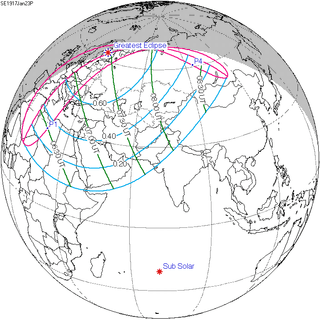 January 23, 1917 |
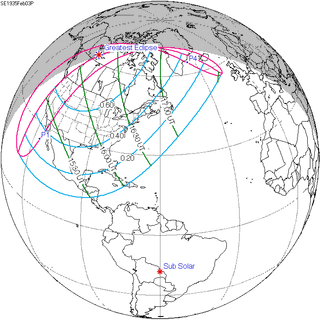 February 3, 1935 |
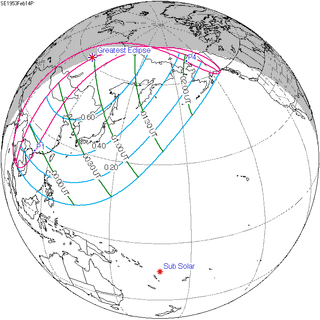 February 14, 1953 |
| 18 | 19 | 20 |
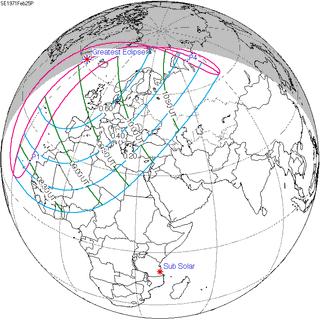 February 25, 1971 |
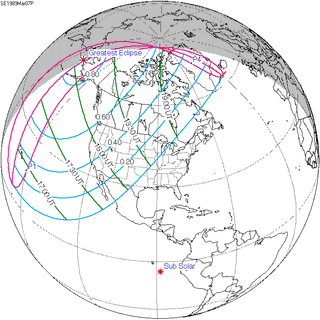 March 7, 1989 |
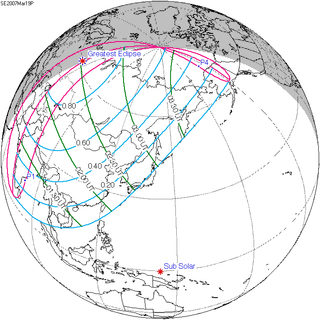 March 19, 2007 |
| 21 | 22 | 23 |
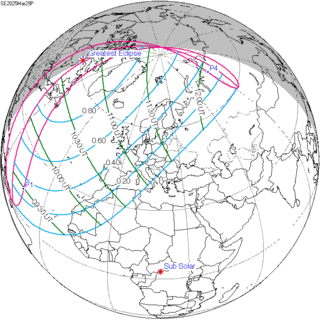 March 29, 2025 |
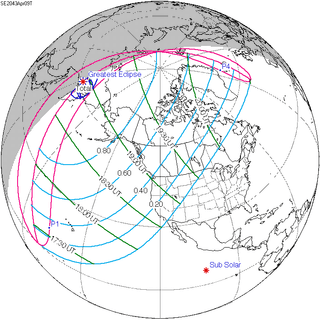 April 9, 2043 |
 April 20, 2061 |
| 24 | 25 | |
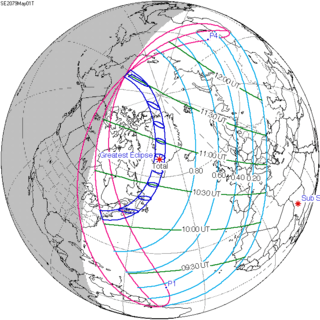 May 1, 2079 |
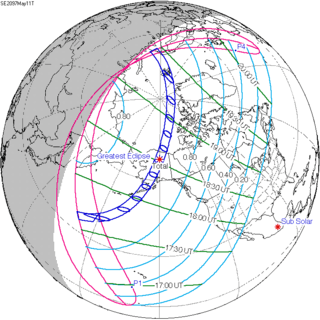 May 11, 2097 | |
Metonic series
The metonic series repeats eclipses every 19 years (6939.69 days), lasting about 5 cycles. Eclipses occur in nearly the same calendar date. In addition, the octon subseries repeats 1/5 of that or every 3.8 years (1387.94 days). All eclipses in this table occur at the Moon's ascending node.
| 21 eclipse events, progressing from south to north between July 1, 2000 and July 1, 2076 | ||||
|---|---|---|---|---|
| July 1–2 | April 19–20 | February 5–7 | November 24–25 | September 12–13 |
| 107 | 109 | 111 | 113 | 115 |
| July 1, 1981 | April 20, 1985 | February 6, 1989 | November 24, 1992 | September 12, 1996 |
| 117 | 119 | 121 | 123 | 125 |
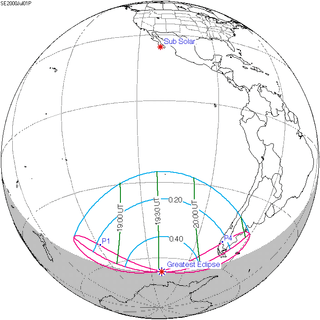 July 1, 2000 |
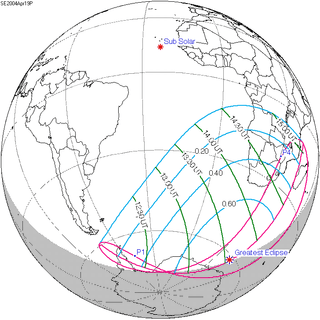 April 19, 2004 |
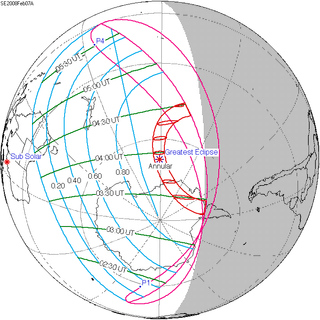 February 7, 2008 |
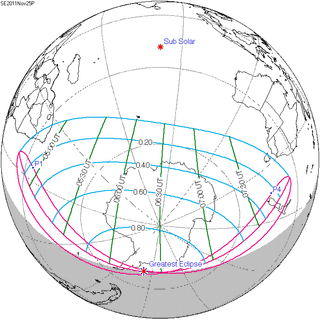 November 25, 2011 |
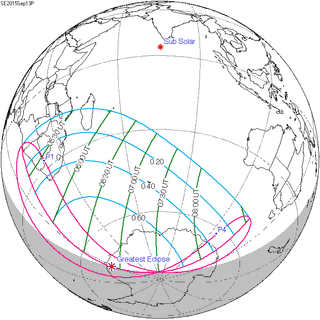 September 13, 2015 |
| 127 | 129 | 131 | 133 | 135 |
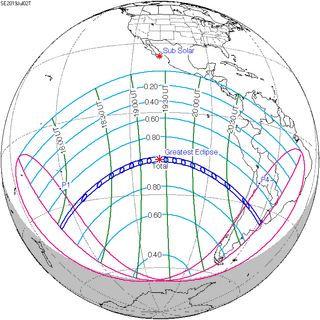 July 2, 2019 |
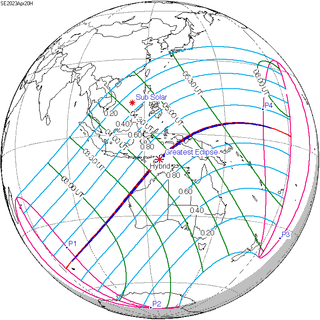 April 20, 2023 |
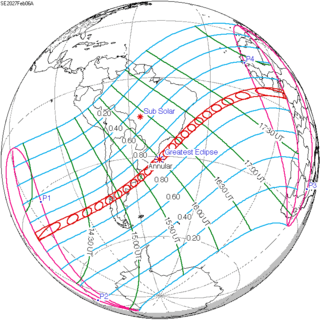 February 6, 2027 |
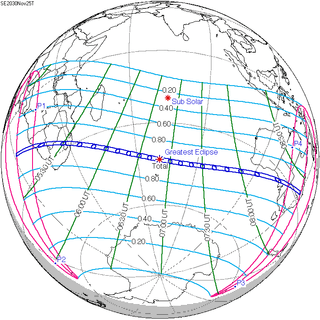 November 25, 2030 |
 September 12, 2034 |
| 137 | 139 | 141 | 143 | 145 |
 July 2, 2038 |
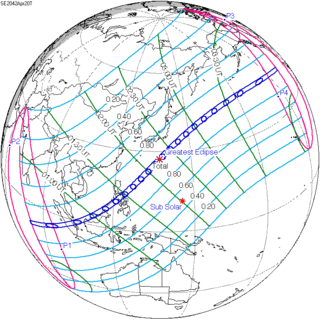 April 20, 2042 |
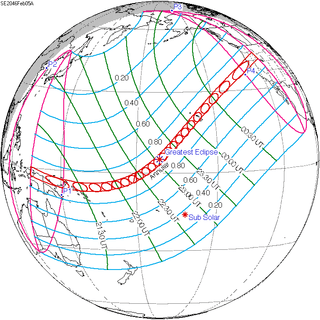 February 5, 2046 |
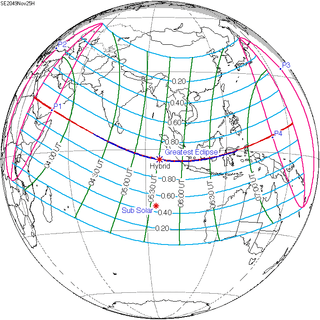 November 25, 2049 |
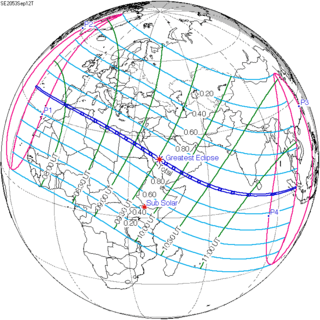 September 12, 2053 |
| 147 | 149 | 151 | 153 | 155 |
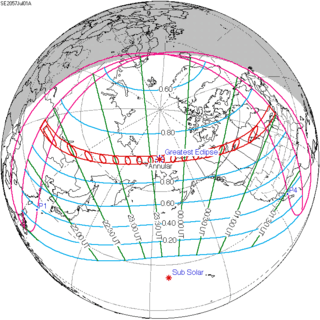 July 1, 2057 |
 April 20, 2061 |
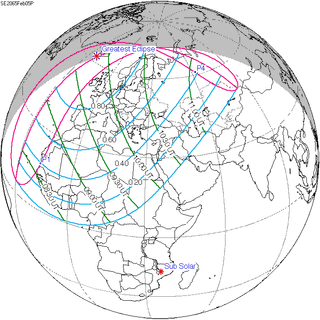 February 5, 2065 |
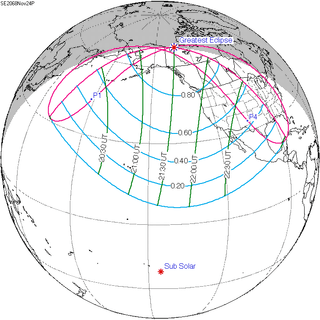 November 24, 2068 |
 September 12, 2072 |
| 157 | 159 | 161 | 163 | 165 |
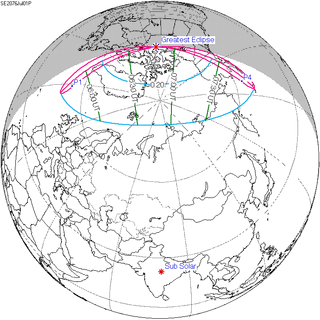 July 1, 2076 |
April 19, 2080 | February 6, 2084 | November 25, 2087 | September 13, 2091 |
References
- van Gent, R.H. "Solar- and Lunar-Eclipse Predictions from Antiquity to the Present". A Catalogue of Eclipse Cycles. Utrecht University. Retrieved 6 October 2018.
- Saros Series Catalog of Solar Eclipses NASA Eclipse Web Site.
- Earth visibility chart and eclipse statistics Eclipse Predictions by Fred Espenak, NASA/GSFC
.jpg)
